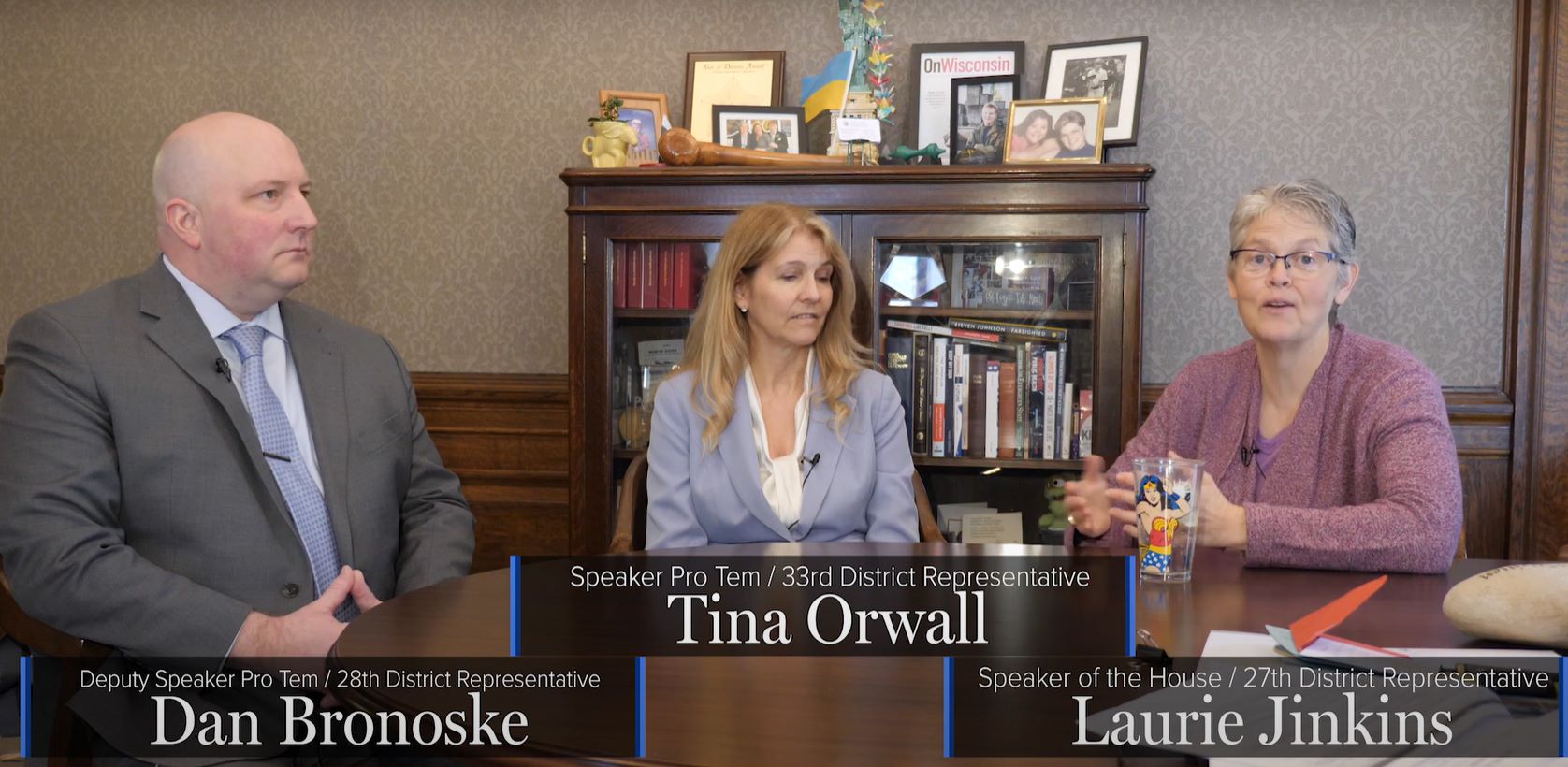—————————————————————————————————————————————————————————————————————
Pierce County high-profile trial begins today: Info and resources for the public
Dear friends and neighbors,
I’m reaching out with some information as our community prepares for the trial of the three Tacoma Police Department (TPD) officers charged with the murder and manslaughter of Manuel Ellis during March 2020.
Manny Ellis’ death was tragic and preventable. Over the last few years we’ve passed legislation to help prevent the use of deadly force by law enforcement officers, including creating standards for police use of force that require exhausting all de-escalation options and increased accountability and oversight when force is used.
While these changes help make everyone safer going forward, they don’t erase what happened to Mr. Ellis. Our criminal justice system is supposed to provide accountability and justice. As we all know, that doesn’t always happen. I hope we experience it in this case. I also want to recognize how the renewed coverage of Mr. Ellis’ death will be difficult or traumatic for Mr. Ellis’ family and friends and for many in our community. His loss is a challenging reminder of the ways our society is still reckoning with racism and anti-blackness.
With all that in mind, I am passing along some resources to help you know what to expect as the trial continues. The jury has been selected, and the trial itself could take as long as 8-12 weeks. Pierce County has put together a website for this trial that includes an FAQ, information on the timeline and process, case documents, and more.
They have also provided information about in-person attendance and virtual streaming options.
If you have questions, there is also a two-minute video that covers the process for high profile trials and what to expect.

2023 Legislative Victories: Environment & the Climate Crisis
| Dear friends and neighbors,
We’ve seen what that means in Washington state: a longer wildfire season, more floods and more drought, and more dangerously hot days. Climate change is real, and it’s at our door. As some of you know, I’ve spent my summers over the last few years hiking the Washington portion of the Pacific Crest Trail. After finishing Washington’s 505 miles this year, I can tell you that there’s no year I’ve hiked on the PCT that I haven’t either been through a big burn or forced off the trail because of one. This picture is from August 2023 as I hiked between Goat Rocks and White Pass. I saw way too much like this. Over the past few years, we’ve enacted landmark policies to reduce our emissions, clean up our water and air, and transition Washington to clean energy. I wanted to share some of our accomplishments from last session, and while I’m proud of this work I know there’s more to do. |

|
|

Moving towards a clean energy future means we’ll have to build more energy production facilities, things like wind, solar, green hydrogen, and more. This year we passed legislation to help streamline the permitting process, which will help get these clean energy facilities up and running faster.
We’re also requiring cities and counties to consider the impacts of climate change in their planning, from infrastructure to development and more. This investment and attention will help create more livable and sustainable communities, and will protect us from additional costs or losses later on.
As we transition away from fossil fuels our demand for electricity will increase, that’s why we’re requiring electric utilities to plan ahead to ensure we’ll have consistent, reliable electricity for years to come.
 I mentioned record-breaking heat earlier, and unfortunately, we’ve seen just how deadly that can be. This year we passed legislation to help vulnerable communities by stopping utility shutoffs during extreme heat events. These protections already existed during extreme winter weather conditions, and we know they’ve helped save lives. I mentioned record-breaking heat earlier, and unfortunately, we’ve seen just how deadly that can be. This year we passed legislation to help vulnerable communities by stopping utility shutoffs during extreme heat events. These protections already existed during extreme winter weather conditions, and we know they’ve helped save lives.
We also know that fighting climate change will need serious investments. Thanks to the Climate Commitment Act we’ve been able to put more money towards the transition to clean energy, protecting our natural resources, and increasing our resiliency. This year’s operating budget included $45 million for forest health and wildfire protection, $36 million for salmon production, habitat, and recovery, $25 million for protecting our biodiversity, and $14 million to manage invasive species. Our capital construction budget also made significant investments. We’re cleaning up our water and planning for floods with $798 million for water quality and $156 million for water supply, $177.8 million for flood risk reduction and habitat restoration, and $184.3 million for toxic cleanups and prevention. We’re also spending $56.6 million to improve air quality across Washington state. Thanks to the money from the Climate Commitment Act we’re able to invest $177 million in active transportation, making it safer and easier to walk and bike in Washington. We’re also investing $406 million in transit programs and projects. We’re transitioning our ferries to electricity, building better infrastructure for our rail, freight, and ports, and much more. |
2023 Legislative Victories: K-12 Education and Early Learning, plus Legislative Internship Application Open
 Dear friends and neighbors, Dear friends and neighbors,
Last week was the first week of school for Tacoma Public Schools, and I thought I’d take this opportunity to share what we did last session for K-12 education and early learning. I also want to thank the many of you who have joined us at community conversations over the last few months. It’s been fun to meet with people across the district and celebrate the many places we can gather in our community. Special thanks to the Tacoma Public Library, Franklin Park, Heritage Coffee and Plant House, and the Center at Norpoint for hosting us. While we don’t have any more community conversations planned right now, you can always get ahold of my office via phone (360-786-7930) or email to share your perspective. |

|
|

This year we focused on getting students the tools and support they need to thrive, making the largest new investment in K-12 education since 2017. That includes increases for more nurses, counselors, and social workers in our schools. We also increased funding for special education by $417 million to better support students with special needs and their educators, and expanded our dual language investments with $13 million in new funding. Our educators also deserve a living wage, and this year we invested $521 million to salary adjustments and healthcare costs for K-12 educators. Overall, our operating and capital budgets invest billions of new dollars in public education.
Last year we passed legislation expanding access to free school meals for 350,000 students; this year we expanded that program to serve another 90,000 students across Washington state.
We know that students learn in many different ways, so this year we expanded our graduation pathway options to include performance based learning of real world skills and school credit for paid work experience.
K-12 education is one of our biggest priorities, but we need to invest in early learning and post-secondary education to ensure that we’re setting our students up for success. I talked more about post-secondary education in a newsletter earlier this summer, you can check that out here.
|
|

If we want our investments in K-12 and post-secondary education to be successful, we need to invest in our youngest learners, too. Over the last few years, we’ve funded landmark expansions for our child care and early learning programs. Thanks to the Fair Start for Kids Act and our investments this year, we’re on our way to providing access to the Early Childhood Education and Assistance Program (ECEAP) for all qualifying families. In this year’s budget we added $82 million for additional ECEAP slots. We know that in addition to making child care more affordable, we need to make it more accessible. That’s why this year we also allocated $256 million to increase salaries for family child care providers and invested $5 million to help facilities offer more non-standard hours.
We know that finding affordable childcare can also prevent people from accessing opportunities. That’s why we passed HB 1525, which expands the Working Connections Child Care program to first-year apprentices. The bill also changes the requirement for apprentices to be full-time, giving families more flexibility as they learn skills that will help them find good, family-wage work.
Investing in early learning is one of the best things we can do for the future of our state. I’m proud of what we’ve done over the last few years, and I know there’s more to come.
|
|

Applications are open now for the Washington State Legislative Intern Program! This program is an incredible opportunity for higher education students – you’re matched with legislators in the House or Senate based on your interest areas and political ideology, and you spend a session working in Olympia and learning about the legislative process. The priority deadline for applications is October 22nd, and you receive academic credit for the program as well as a monthly stipend of $2,400.
2023 Session Victories: Local Projects, plus Community Conversations and WA Cares
Dear friends and neighbors,
We’re here with an update on what local projects we funded during this year’s legislative session! The money for these local projects can come from a couple places, but the biggest two are the transportation budget and the capital budget. The transportation budget goes to things like public transit, roads, sidewalks, and other transportation infrastructure. As Chair of the Transportation Committee Rep. Fey is the lead for the transportation budget in the House. The capital budget goes towards things like construction and renovation, including housing, K-12 and higher education buildings, and community projects. With that, here’s some more information about the investments you can look forward to in our district!
Important Transportation Projects in the 27th Legislative District
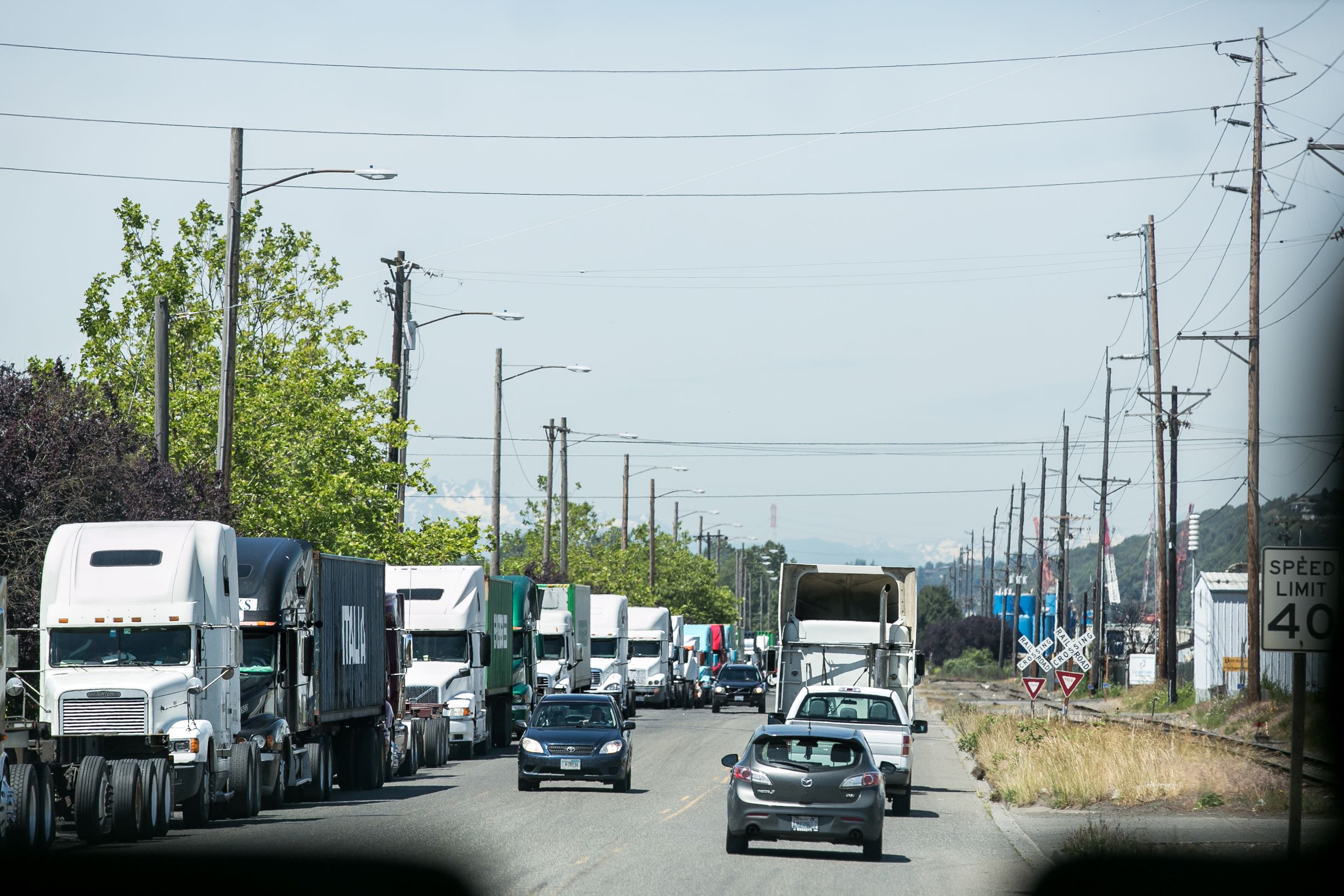 The Puget Sound Gateway Program (SR 167 and SR 509 completion) is two projects in one—SR 509 connects SeaTac to the Kent Valley and SR 167 connects the Port of Tacoma to Sumner and Puyallup. $873 million has been allocated to this project over the next two years and is currently in stage two of construction. This project will allow for a tolled expressway from I-5 to the Port of Tacoma. The total cost for this project will be $2.2 billion, and once complete, it will greatly improve the movement of goods to the Port of Tacoma. This project also funds a shared use trail for pedestrian and bicycle travel from Puyallup to Tacoma.
The Puget Sound Gateway Program (SR 167 and SR 509 completion) is two projects in one—SR 509 connects SeaTac to the Kent Valley and SR 167 connects the Port of Tacoma to Sumner and Puyallup. $873 million has been allocated to this project over the next two years and is currently in stage two of construction. This project will allow for a tolled expressway from I-5 to the Port of Tacoma. The total cost for this project will be $2.2 billion, and once complete, it will greatly improve the movement of goods to the Port of Tacoma. This project also funds a shared use trail for pedestrian and bicycle travel from Puyallup to Tacoma.- Over the next two years, $7.7 million is funded for access improvements on the Port of Tacoma Road. This road is one of the major arterials serving the Port of Tacoma and is in desperate need of an upgrade. An additional $22 million to fund this work from 2025-2027 is projected.
- The state is matching $5 million in funding for the Tacoma Rail Battery-Electric Switcher Locomotive Replacement Project, which combined with federal and city funds will allow Tacoma Rail to purchase two electric locomotives. These will have a significant impact on carbon reduction and improving air quality in our region.
- Pierce Transit is the recipient of $15 million for its Tacoma- Spanaway Bus Rapid Transit project that will accelerate the frequency and run time along SR 7-Pacific Ave. This is the first BRT for Pierce Transit.
- The Northwest Seaport Alliance’s Port Drayage Zero Emission Pilot program has received $6.3 million from CCA auction funds to replace old diesel-emitting trucks. The new trucks will be electric and benefit our region by improving air quality and reducing carbon emissions.
Important Capital Projects in the 27th Legislative District
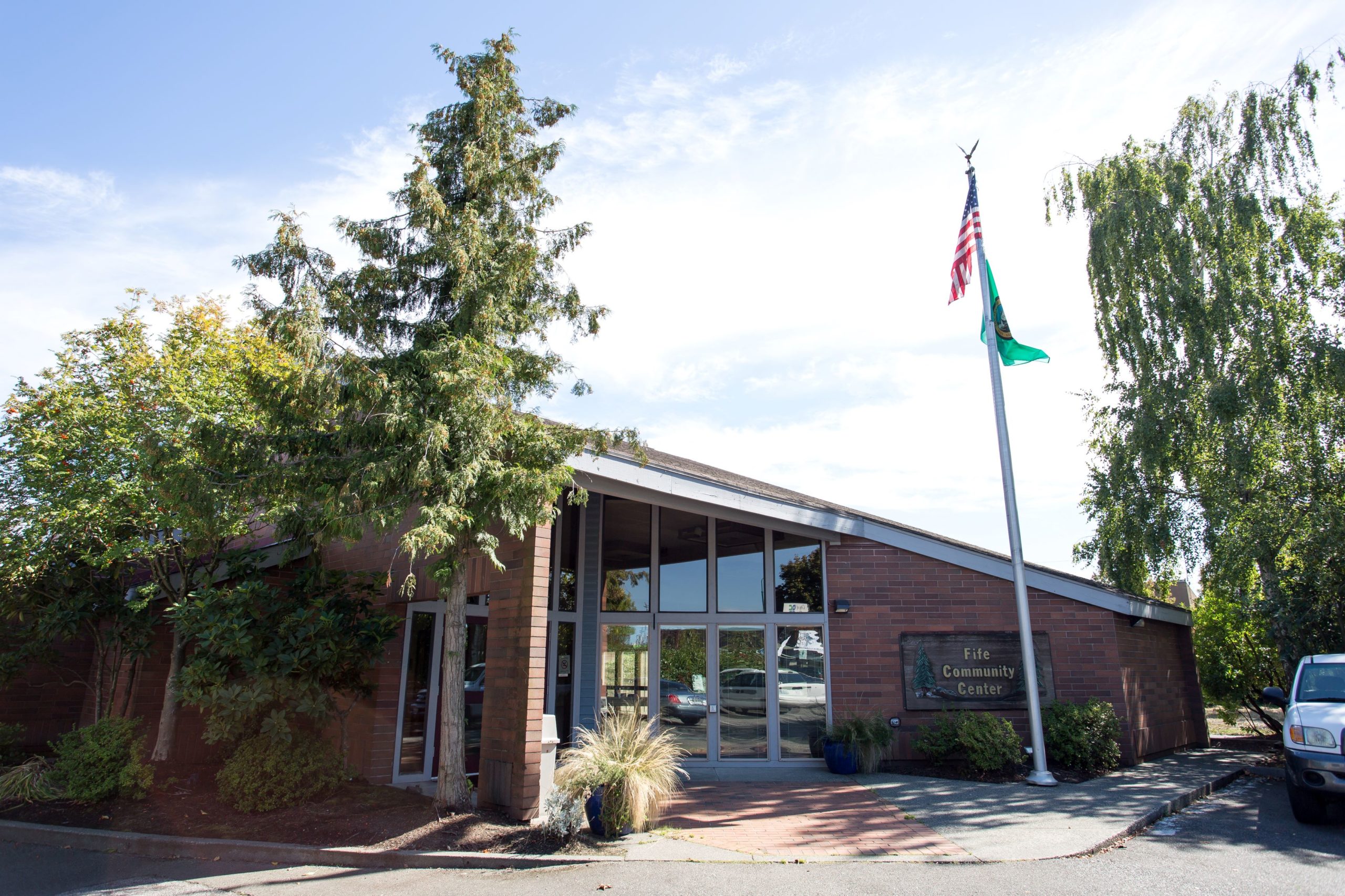
- $1 million for Shiloh Baptist Church to provide affordable housing
- $2 million to build a new Asian and Pacific Islander Cultural Center at the current APCC location
- $1.5 million to make critical repairs to the Fife Aquatic and Community Center
- $2.4 million for the CLR Certified Community Behavioral Health Center
- $90,000 for the Latino Arts and Culture Community Center
- $3 million for the Scott and Sis Names Family YMCA community center
- $3.5 million for the Sea Mar Community Health Center in Tacoma
- $2.5 million to the Multicultural Child and Family Hope Center for their Cora Whitley Family Center, which will hopefully expand childcare options in the district
- $226,000 for the Multicultural Youth Recreation Facility
- $7.7 million for the UWT Campus Land Acquisition to ensure that UWT can continue to grow their Tacoma campus
- $2 million for the Tacoma Public Library
- $5 million Lincoln District Family Housing
Dash Point/Browns Point Annexation
At the request of a number of citizens in the Dash Point/Browns Point area, SHB 1620 was introduced (and passed – it becomes law on July 23) to allow residents to consider the full range of options for local governance. Residents wanted to be able to consider incorporation as one of the options for governance. State law prevented areas with the population of the Dash Point/Browns Point area to consider incorporation as a town. In the past, there was discussion of annexing the area to the City of Federal Way or the City of Tacoma in the hopes that the area would see improved services, particularly regarding public safety. Residents wanted the opportunity to consider through a public discussion process whether the area would be best served by annexation to another city, incorporation as their town or continued services provided by Pierce County. With the passage of SHB 1620 residents now have all options available to them.
Community Conversations
Our community conversations kick off next week! These are intended to be small group discussions so please stop by to ask questions or talk about issues that are important to you.
Thursday, July 13th from 2-3pm at the Fife Pierce County Library, 6622 20th St E, Fife, WA 98424
Thursday, July 27th from 6-7pm at the Center at Norpoint, 4818 Nassau Ave NE, Tacoma, WA 98422
Tuesday, August 29th from 11:30am-12:30pm at Heritage Coffee and Plant House, 2310 Court A, Tacoma, WA 98402
Tuesday, September 5th from 12:30-1:30pm at Tacoma Public Library South Tacoma Branch, 3411 S 56th St, Tacoma, WA 98409
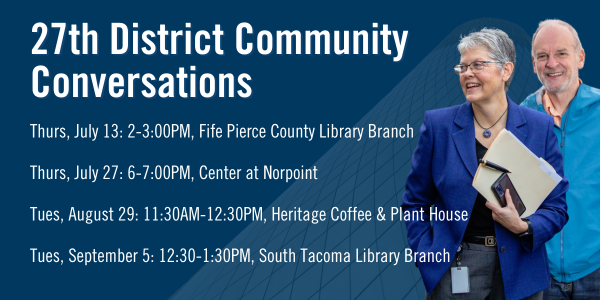
The WA Cares website has launched!
Washington Cares will help provide critical access to long-term care; most people don’t have long-term care insurance policies or enough savings to pay for the care they will need as they age. Even those who do have private long-term care policies can find themselves struggling when benefits are delayed or denied. You can learn more about the program and what it will cover here.
2023 Session Victories: Reproductive Care and LGBTQ Rights
Dear friends and neighbors,
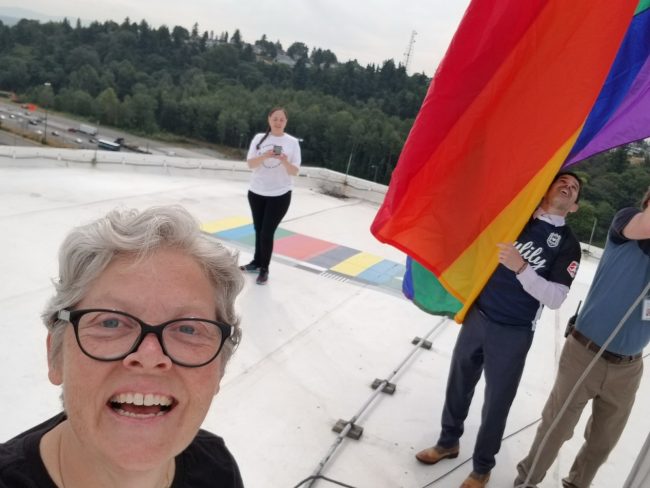
Over the last year I’ve found myself thinking about Washington’s role as a beacon of hope.
June is Pride month for most of the nation (although Tacoma celebrates Pride in July) but this year we’re also recognizing the one-year anniversary of the overturning of Roe v. Wade.
Pride has always been an act of resistance, a celebration of the fact that queer people are here to stay, and that we deserve equal rights, protections, and access. Earlier this year the Secretary of State’s office had an event celebrating the 10th anniversary of marriage equality in Washington state. In my remarks I reflected on how much has changed in my lifetime, and the courage from so many people who helped make that change possible. As other states enact cruel and discriminatory policies designed to actively harm transgender youth, eliminate queer people, and push us out of public life, we need to be courageous in our defense and support of LGBTQ people, especially our youth.
Similarly, across the nation we’ve seen a coordinated attack on abortion access, reproductive health care, and bodily autonomy. Last year the Supreme Court of the United States decided to undo longstanding legal precedent to strip away rights from millions of people. Since then, many states have restricted or banned abortions and other kinds of reproductive care. The people of Washington state enshrined abortion access into state law by initiative, and we’ve expanded those protections through legislation and budgetary investments.
However, if there is anything I’ve learned in over 30 years of advocacy, the work continues. Below I’ll go over some of the work we did this session to expand protections for LGBTQ people and for people accessing reproductive care.
I am immensely proud of Washington for being a place people can look to for hope. I hope you are, too.


This session we solidified access to abortions and reproductive care.
We passed legislation shielding patients and providers of reproductive care and gender-affirming care from retribution by other states. By ensuring that states like Texas cannot reach into Washington to implement their archaic and punitive laws, we can ensure care remains available for people who need it in Washington state.
We also passed the My Health, My Data Act which protects the right to reproductive care by blocking websites and apps from collecting and sharing sensitive health data.
We know that protecting access to abortion, reproductive care, and gender-affirming care in Washington also means protecting our providers. We passed legislation to ensure they cannot be disciplined for providing care in accordance with Washington state law, no matter where their patients live.
Finally, we passed legislation ensuring that Washingtonians will continue to have access to a safe abortion pill, Mifepristone, regardless of pending federal lawsuits.
These bills are supported by a $24 million investment in reproductive health services to ensure that Washington providers can meet the increased need for services in our state as people come here to get the care they need.

LGBTQ people are under attack across the country, with much of the focus on the transgender community and LGBTQ youth. That’s why we expanded protections for LGBTQ people this session, with a focus on protecting those most at risk.
I mentioned gender-affirming care in a couple of the reproductive rights bills; that ensures providers can continue to offer gender-affirming care, whether their patients live in Washington state or somewhere else, without fear of retaliation from states that oppose bodily autonomy.
In addition to those protections, we passed legislation to help get homeless transgender youth into housing, offering protections for homeless youth seeking gender-affirming treatment. We also passed legislation that makes it easier to seal name change records, protecting transgender people and making it safer for them to seek housing, employment, or medical care.
The data on mental health for LGBTQ youth and particularly transgender youth is devastating. These kids need a loving and supportive community, and they need to be able to see a future where they can live and thrive. I hope Washington can help provide that hope.

I’d also like to remind you about my upcoming community conversations. These are intended to be small group discussions so please stop by to ask questions or talk about issues that are important to you!
Thursday, July 13th from 2-3pm at the Fife Pierce County Library, 6622 20th St E, Fife, WA 98424
Thursday, July 27th from 6-7pm at the Center at Norpoint, 4818 Nassau Ave NE, Tacoma, WA 98422
Tuesday, August 29th from 11:30am-12:30pm at Heritage Coffee and Plant House, 2310 Court A, Tacoma, WA 98402
Tuesday, September 5th from 12:30-1:30pm at Tacoma Public Library South Tacoma Branch, 3411 S 56th St, Tacoma, WA 98409
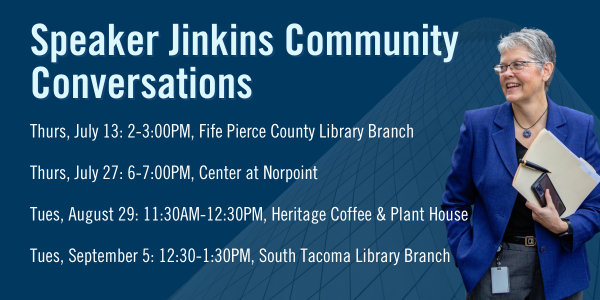
2023 Session Victories: Post-Secondary Education, Apprenticeships, and Workforce Development; plus Community Conversations
Dear friends and neighbors,
I’m back with another update on what we were able to accomplish this session! As many students are wrapping up the school year or preparing to graduate, I thought it would be fitting to talk about the work we’ve done to help people take their next step in life, whether that be post-secondary education, apprenticeships or some other form of workforce development. This is especially meaningful for me this year as I’ll be heading up to Bellingham in the next few days to celebrate our son’s graduation.
Educating our students is one of our state’s highest priorities. It’s an investment in our future, from growing individual economic stability to creating a workforce that meets Washington’s needs. These topics were a big focus for us this year, and I’m excited to share more about our work.
I also wanted to let you know that I’ll be hosting community conversations across the district over the next couple months. These are intended to be small group discussions so please stop by to ask questions or talk about issues that are important to you! My first stop is Thursday, July 13th, 2:00-3:00pm at the Fife Pierce County Library, and I’ll be joined by Rep. Fey. I’ll keep you posted about other dates, times, and locations!
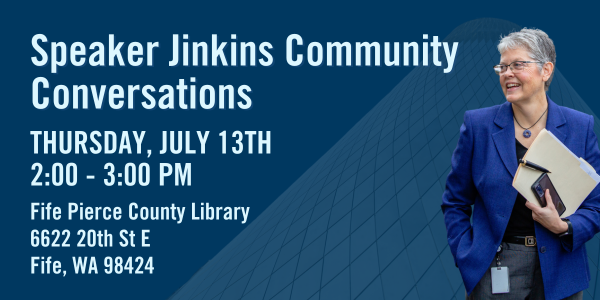
–

This session we looked at ways we could make post-secondary education more accessible for all students in our state. From expanding access to increasing financial aid, we want to make sure every student’s post-secondary education goals are within reach.
That starts in K-12, where we expanded access to the running start program, which allows high school students to attend classes at our community college and four-year institutions, and eliminated fees for College in High School courses. These dual credit opportunities help prepare students for post-secondary education and allow them to get college credit for coursework before they leave high school. We also passed legislation establishing regional apprenticeship programs which gives high school students the opportunity to learn valuable skills that lead to good, family-wage jobs.
We expanded the Working Connections Child Care program to first-year apprentices, helping make childcare more affordable for families with lower incomes and making it easier for more people to enter the trades. We also passed legislation that will boost the use of apprentices in public work contracts, which will help us attract and retain the next generation of skilled workers.
Additionally, we expanded access to the College Bound Scholarship, helping more students access a degree or credential. Half of all students in Washington state experience food or housing insecurity, this year we set up a program to help connect students with the resources they need, including access to meal vouchers. These support services help students focus on their coursework instead of where their next meal is coming from or where they’ll sleep that night.
In addition to these investments we also expanded the Washington College Grant by $13 million, ensuring more students can get the degree, credential, or apprenticeship they want without taking on debt.

Our post-secondary education investments go hand-in-hand with our investments in workforce development. Every sector in Washington has been impacted by workforce challenges, from behavioral health to childcare, long-term care to K-12 education, public safety, and more. This session we invested $382 million in the future of our state though post-secondary education and workforce development.
We also know that we need to act now to help address our current workforce shortages. That’s why we passed legislation to enter interstate compacts or remove licensing barriers for dental hygienists, audiologists, and mental health counselors. These interstate compacts will make it easier for people who move to Washington to get working right away, and are particularly important for our military families (we also passed another bill specifically helping military spouses obtain professional licenses when they move to Washington state).
We also passed legislation to help us track supply and demand in the healthcare workforce, giving us the data we need to better serve communities across the state and plan for the future. We also acted to address our homecare worker shortage, grow our behavioral health workforce, and remove barriers in hiring paraeducators. Additionally, we dedicated $48 million to health care workforce development and training in our operating budget.
These changes work with other investments we made to increase wages for health care workers like behavioral health providers, primary care providers, pediatricians, and more.
2023 Session Victories: Let’s talk housing, behavioral health, and community safety
Dear friends and neighbors,
In my last full e-newsletter I said it would take more than one email to cover all the work we did this session. Over the next couple months, I’ll be going issue-by-issue to provide updates on what we accomplished. We’re starting today with housing, behavioral health, and community safety.
I’ve heard from many of you on these topics, whether it’s concerns about housing affordability, questions about law enforcement recruitment, retention, and oversight, or how we can do more to help people in need.
I’m proud of what we were able to accomplish in all three of these areas, and excited to share these wins with you. Please let me know if there are other topics you would like me to cover.

Right now our statewide housing supply is short between 150,000 to 250,000 units. On top of that, we need to build one million homes in the next 20 years to meet our projected needs. This year we focused on building our housing supply, increasing housing stability, and ensuring there is support to help get and keep people housed.
This included big budget investments in our operating budget and capital construction budget. Our operating budget invests $519 million in housing, including:
- $141 million in continued funding for emergency housing and rental assistance
- $60 million in additional funds for encampment response and outreach
- $30 million to expand funding for children and youth homelessness
- $27 million in increased funding for Housing and Essential Needs
Our capital construction budget investments include:
- $400 million for the Housing Trust Fund, a competitive grant program to build affordable housing
- $170 million for affordable housing and shelters, including $14.5 million for youth shelter and housing projects and $50 million for transit-oriented development
- $124 million for home upgrades, including $35 million for weatherization in low-income households and $83 million for home energy efficiency rebates
We passed legislation to expand middle housing options in cities across our state, with a focus on expansion in areas near major transit stops. We need more of all kinds of housing, and this legislation helps make that possible. We also ensured that property owners who want to build an ADU will face less regulatory barriers.
We know that our real estate industry has a well-documented history of racism. This year we’re beginning to right that wrong with the Covenant Homeownership Act, which will provide down payment and closing cost assistance for people that have historically faced housing discrimination.
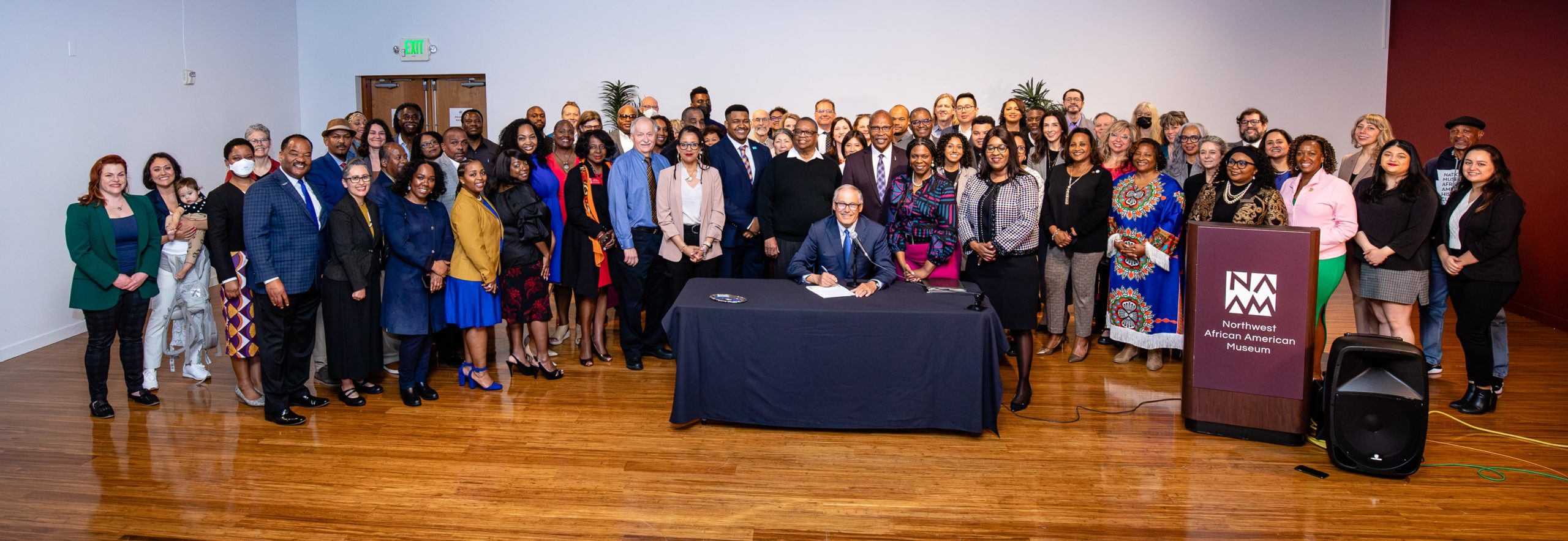
We’re also protecting renters from unfair deposit practices. A rental deposit should be just that, not a fee. When you’ve taken good care of a rental and leave only normal wear and tear, you should be able to get most of your deposit back.

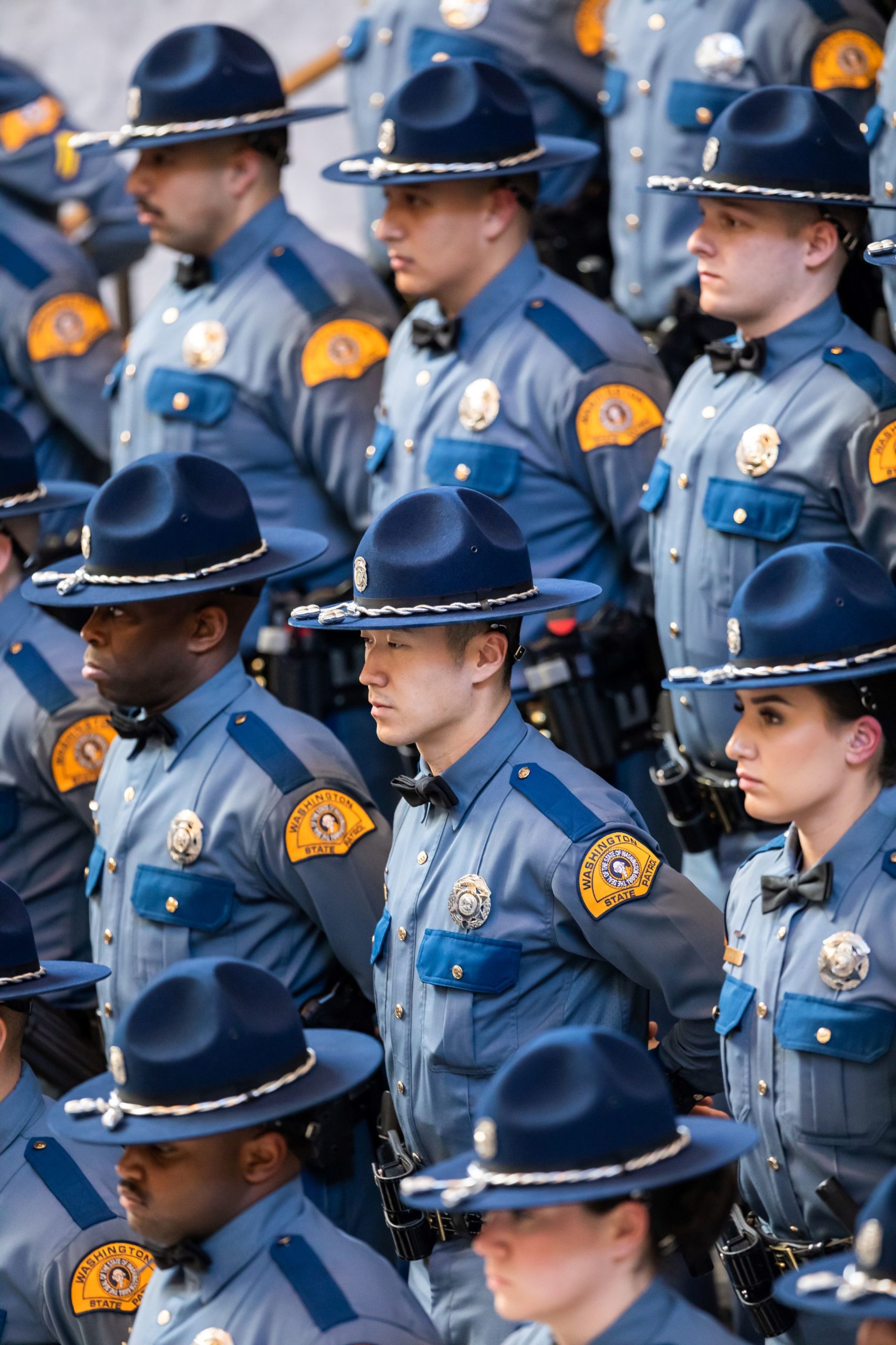
I’ve heard from many of you with different concerns about community safety. Concerns about gun violence prevention, about giving our law enforcement the tools they need to keep us safe, about what oversight there is for law enforcement officers that go too far, and what we’re doing to protect and support victims throughout our justice system.
Gun violence is preventable. During the 10-year period when the federal assault weapons ban was in effect, mass shooting fatalities were 70% less likely to occur. We heard on the House floor about some of the devastating losses people across the state have experienced in shootings where an assault weapon was used. That’s why this session we passed a ban on assault weapons.
We also passed legislation to require safety training and waiting periods to purchase firearms. Ensuring people know how to safely use, handle, and store firearms will save lives, as will a waiting period that gives people experiencing a crisis critical time to access help. Part of ending gun violence is also holding manufacturers and retailers accountable. We passed legislation requiring them to take reasonable steps to enforce existing laws, track their inventory, and prevent straw sales.
We also passed bills to support survivors of sexual assault by promoting victim-centered, trauma-informed responses in our legal system. Additionally, we improved protections for people experiencing domestic violence, ensuring the system works to keep them safe and that law enforcement and judicial officers have the training they need.
Private detention facilities in Washington should have to meet the same health and safety standards as public facilities, which is why we passed legislation to protect basic human rights for people in detention. We also know that family support and reentry services are critical to help people reentering society after detention, which is why we passed legislation to ensure that people who are incarcerated don’t have to pay to see their family. We also passed legislation to ensure that everyone reentering society has a plan and access to resources.
We also made adjustments to our vehicular pursuit law to ensure that police are able to pursue dangerous subjects, and to allow each community to set pursuit policies that work for them.
This legislation goes hand-in-hand with the investments we made in our operating budget. We allocated $253 million for public safety, legal aid, and corrections, including:
- $62 million to expand domestic violence services
- $52 million for the Office of Public Defense and the Office of Civil Legal Aid
- $27 million to expand criminal justice training and certification
- $12 million to expand firearm violence prevention grant funding
- $7 million to increase wages and gratuities for people who are incarcerated, currently people who are incarcerated only make up to $2.70 an hour

In my Sine Die newsletter at the end of April I mentioned that we were still working on a fix for the Blake decision in Washington state. I’m proud to say that in a quick, one-day special session last week we passed an agreement with strong bipartisan support.
Some background: In 2021, the Washington State Supreme Court found our law on drug possession unconstitutional. In response to that decision, we passed legislation building a new system focused on access to treatment and recovery but gave it a sunset so we could fine-tune the details as we saw the system in action. This compromise is a big deal, setting up systems for outreach, treatment, diversion, and recovery while still ensuring accountability. You can learn more about the bill here.
While Blake was one of our biggest priorities this year, we did lots of other work on behavioral health. We implemented a 988 behavioral health crisis response and suicide prevention system to ensure that people in crisis can connect with the resources they need. We also expanded access to certified peer specialists, people with lived experience that can help those in crisis.
We also acted on the youth mental health crisis, creating a new care coordinator to provide support for children living in hospitals for extended periods and their families. This coordinator will help provide individualized support and pull resources from multiple state agencies to help get kids into appropriate care as soon as possible.
Last year we leveraged federal funds to invest heavily in behavioral health in our operating budget; this year we built on those investments with:
- $271 million to increase rates for behavioral health providers
- $123 million for additional community bed capacity
- $115 million to expand opioid and other substance use disorder prevention and treatment
- $69 million to fund 988 crisis response and IT initiatives
- $55 million for crisis, outreach, and diversion programs
- $29 million to fund youth behavioral health
This Thursday: Join me for a telephone town hall!
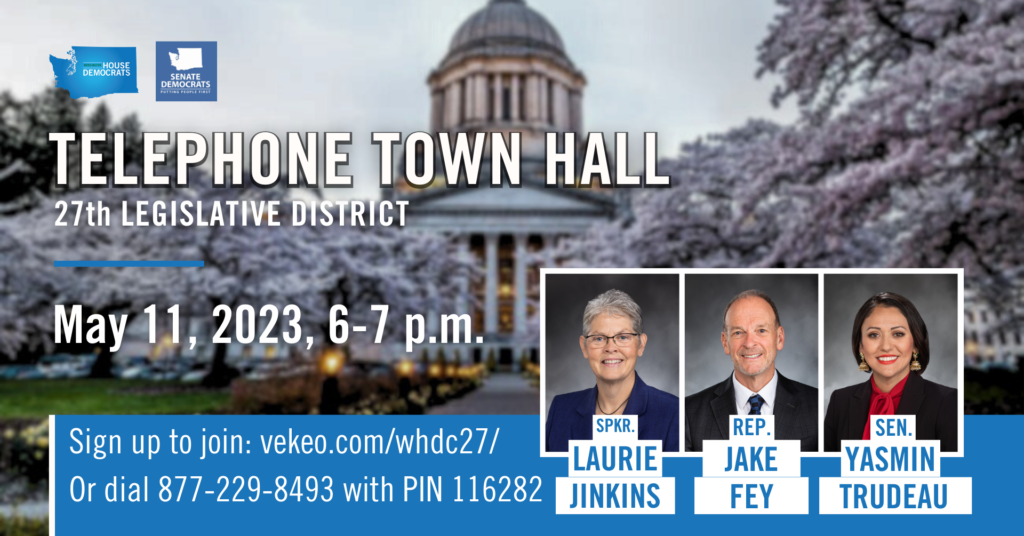
Dear friends and neighbors,
Just a reminder that Sen. Yasmin Trudeau, Rep. Jake Fey and I will be hosting a telephone town hall for 27th District constituents THIS Thursday, May 11th from 6-7 p.m.
Most district households with a landline should automatically receive a call around 6 p.m. inviting you to join. If you don’t have a landline, or you want to make sure you receive a call from us, you can sign up at the following link:
You can also join the conversation by calling 877-229-8493 and entering PIN # 116282 (note: this number will be active beginning about 5 minutes before the event start time).
We look forward to coming together as a community and taking your questions about the recently-concluded legislative session.
I hope you are able to join us.
Sincerely,

End of Session Update and a Telephone Town Hall
Dear friends and neighbors,
Earlier this week we wrapped up the 2023 legislative session. I’m proud of what we were able to accomplish in 105 days, and I’ve got a high-level overview below. We did a lot more than I can cover in just one newsletter, so I’ll be reaching out with more information in the coming days and weeks.
If you want a preview on some of that, we’re also hosting a telephone town hall on Thursday, May 11th at 6:00 PM, there’s more information about that below.
![]()
I’ve mentioned a couple of times this year how our work in Olympia is largely bipartisan, and this year was no exception. We passed 474 bills, 286 of those bills received unanimous support in their last vote on the floor. 379 of those 474 bills passed with over 80% of legislators in support. I’ve said it before: at the end of the day, we’re all here to work on behalf of the people of this state.
With that, here are some highlights:
Housing
Our Operating and Capital Construction Budgets together make over $1 billion in housing-related investments to address housing affordability and the homelessness crisis. That includes:
- $141 million for emergency housing and rental assistance
- $60 million for encampment response and outreach
- $30 million in additional funding for children and youth homelessness
These investments are a big deal and will go a long way towards helping keep people housed and get people into housing. But we know that alone isn’t enough, which is why we also passed bills to expand middle housing options (HB 1110), make it easier to build accessory dwelling units, or ADUs (HB 1337), and protect renters from unfair damage deposit claims (HB 1074).
Workforce
At the beginning of session, I talked about how every sector in Washington has been impacted by workforce challenges, from behavioral health to childcare, long-term care to K-12 education, public safety, and more. That’s why we’re investing $382 million in college and workforce development, helping to ensure we’re building the workforce of the future.
We know that it will take time for some of those investments to come to fruition, which is why we also passed a number of bills targeted at growing our workforce now. That includes bills to enter interstate compacts for dental hygienists, audiologists, mental health counselors, making it easier for people like military spouses to get to work in Washington state. We also passed legislation to address our homecare worker shortage (HB 1694), grow our behavioral health workforce (HB 1724), and remove barriers in hiring paraeducators (HB 1015).
Reproductive Rights
This session, we focused on what we can do in Washington to protect access to reproductive health and freedom and the right to make medical decisions without government interference. We invested $24 million in reproductive health services in our operating budget this year, in addition to passing legislation like:
- The My Health, My Data Act (HB 1155), which protects the right to reproductive care by blocking websites and apps from collecting and sharing sensitive health data.
- The Shield Law (HB 1469), which protects patients and providers of reproductive and gender-affirming care in Washington from retribution by other states, ensuring that care remains available to those who require it in Washington state.
- A bill to protect Washington’s health care providers (HB 1340), ensuring they cannot be disciplined for providing reproductive or gender-affirming care in accordance with Washington state law, regardless of where their patients reside.
- A bill ensuring that Washingtonians will have access to a safe abortion pill, Mifepristone, regardless of pending federal lawsuits. (SB 5678)
I know that many of you were also tracking our response to the Blake decision this year, and while we weren’t able to pass a bill this session our work is ongoing, and I’ll keep you updated.

|
|
Join us for a Telephone Town Hall!

Now that session is over, we’ll be hosting a telephone town hall to give an update and answer your questions. We’ll be calling households in the district at 6PM on Thursday, May 11.
There are a couple ways you can join:
- Sign up here by selecting the “Let’s Talk” button on the May 11 event
Or
- Dial in at 6PM on Thursday, May 11 by calling 877-229-8493, PIN #: 116282
I hope you’ll join us May 11th, and I look forward to answering your questions.
Session Update: bills so far, presiding over the House, and more
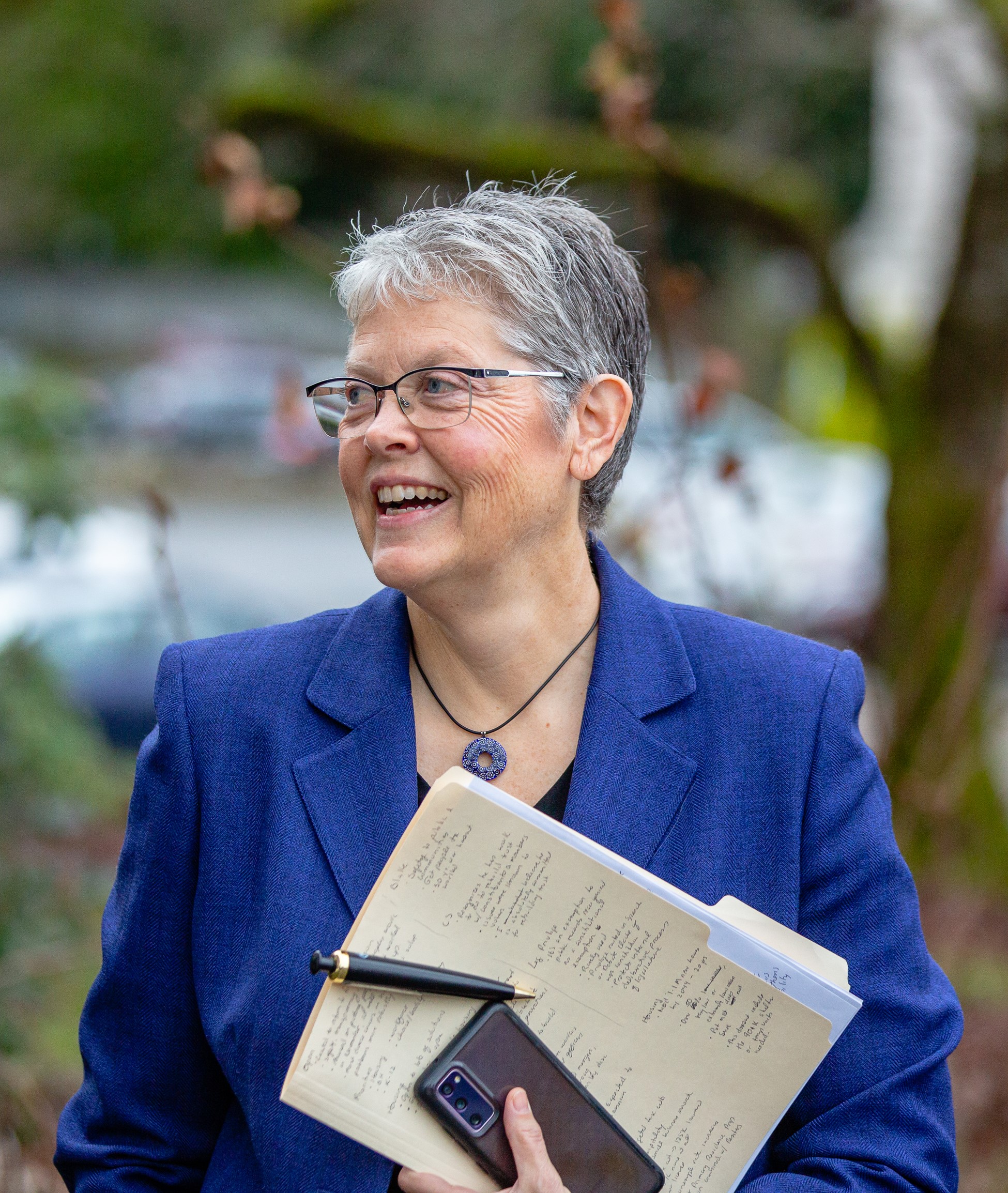 Dear friends and neighbors,
Dear friends and neighbors,
Today is the 96th day of this year’s 105-day legislative session, and I have some updates!
This week was the opposite chamber cutoff, which means we crossed the deadline for most bills to pass out of the opposite chamber (so the Senate for all our House bills). We’re also closing in on Sine Die, which is legislative jargon for the last day of session. We have until next Sunday, April 23rd, to wrap up our work.
I’m proud of what we’ve been able to do so far this session. I’ll talk about some of our most important bills later, but we’ve sent 161 bills to the Governor’s desk so far. I’m particularly proud that 115 of those bills had unanimous bipartisan support. We do a lot of important work down here, and most of it is incredibly bipartisan.
This next week is all about concurrences (looking at changes the Senate made to House bills and deciding whether we want to keep them or negotiate a different option) and finalizing our budgets for this biennium.

Legislative Update
We’ve done a lot of good work this session, and I wanted to highlight a couple particularly impactful bills.
This session we knew we needed to do more to protect reproductive rights and gender-affirming care in Washington state. We’ve done that in a couple ways – ensuring that providers can’t be punished for doing their job, protecting patients in Washington state from other states trying to impose their beliefs on us, and protecting your sensitive health care data.
We also took strong action on gun violence prevention, passing bills to ban assault weapons, hold gun manufacturers accountable, and require a 10-day waiting period and safety training to purchase a firearm.
Another important bill that stands out for me is SB 5729, which caps insulin costs at $35 a month. I’ve been diabetic since I was 12 years old, and I understand just how critical it is for insulin to be affordable. It’s the oldest prescription drug still available yet there are no generics, and costs can be extraordinarily high. This bill will help save lives.
What’s it like presiding over the House?
Last week I sat down with Rep. Tina Orwall and Rep. Dan Bronoske to talk about what it’s like to preside over the House. They both serve in leadership positions and help me run debate on the floor. If you’re curious about what that means you can learn more here.
Getting Involved in Government
I also wanted to pass along an opportunity to get more involved in your state government. The governor is in charge of appointing people to over 230 different boards and commissions, from the local community college board of trustees to the lottery commission to Puget sound restoration. These boards and commissions include identity-based groups and cover almost any interest area you can think of. You can learn more about what’s available and how to apply here.

 This fall we’re wrapping up from another record-breaking hot summer and looking at the rest of what’s on track to be the hottest year in recorded history. If that sounds familiar, it should. The last eight years are also the hottest eight years on record.
This fall we’re wrapping up from another record-breaking hot summer and looking at the rest of what’s on track to be the hottest year in recorded history. If that sounds familiar, it should. The last eight years are also the hottest eight years on record.